Members of the UNMC College of Public Health (COPH) and the US Centers for Disease and Prevention (CDC) Division of Select Agents and Toxins co-led a three-day workshop in Cairo, Egypt in August. The workshop focused on discussing and updating the existing biosafety and biosecurity directives, regulations, and organizational structure in the Egyptian Civil Sector. The workshop was attended by more than 60 senior Egyptian officials.
The COPH, UNMC, and numerous partners attended the first-of-its-kind workshop. This workshop will serve as a model for the Middle East and North Africa (MENA) region to improve laboratory biosafety and biosecurity in an effort to prevent the diversion or release of dangerous microbes and the creation of new pathogens.
Funding and Preparation
This project has been funded by the State Department since 2019. In preparation for this workshop, the UNMC team, including members in Egypt, completed unique activities that could be considered unprecedented on a global scale. These activities included the full translation into Arabic of the three United States Federal Select Agents and Toxins Codes for Animal, Plant, and Public Health, including adding a gain-of-function addendum and developing a comprehensive report and analysis of all the Egyptian laws, presidential and ministerial decrees that relate to infectious agents and diseases from 1889.
Wael ElRayes, MD, PhD, MS, and Dean Ali S Khan, MD, MPH, worked closely with the Egyptian Government, particularly with the Ministries of Agriculture, Higher Education and Scientific Research, and Health and Population, as well as the Egyptian Drug Authority (EDA), the Holding Company for Biological Products & Vaccines (VACSERA), Tudor Bilharz Institute, and the Egyptian Society for Infection Control (ESIC) to organize this workshop. The lead for the national biological health security from the Ministry of Defense also attended the three-day activities. The workshop was supported by both the WHO Egypt Country Office as well as the WHO regional office (EMRO).
Recommendations
The participants discussed the different aspects and components of a functional and efficient national biosafety biosecurity structure. The Egyptian ministries participated in presentations related to the current status of their ministries. The working sessions, which included participants from all Egyptian entities as well as the WHO and independent consultants, developed a list of recommendations that included:
1. The need for a single select agent entity that can have national oversight in the Office of the Egyptian Prime Minister.
2. The need for a comprehensive legal framework that regulates biosafety and biosecurity domains and practices.
3. The need for immediate next steps that can execute and build on the findings and recommendations of the workshop.
4. The need for training in both biosafety & biosecurity and risk assessment and management of dangerous pathogens.
Next steps
Specific next steps include:
1. The participants established an ad hoc executive committee to connect with policymakers and execute the recommendations. They plan to independently advocate for the creation of this entity to their respective Ministers. Representatives included members from the Agriculture Research Center, the Animal Health Research Institute, and Ain Shams University.
2. Provide technical, administrative, and financial support to this ad hoc cross-Ministerial group for advocacy efforts.
3. The Egyptian Society for Infection Control and the Arab Medical Union have committed to developing a professional diploma in biosafety and biosecurity. Additionally, Ain Shams University, one of the oldest and biggest universities in the MENA region, will add biosafety and biosecurity modules to its medical school curriculum and graduate programs.
4. Discussion with the Egyptian Cabinet Information and Decision Support to transfer technology to allow them to establish and maintain a database of laboratories in Egypt and their testing for and holdings of dangerous pathogens.
The workshop drew national attention and was featured on one of the main news outlets in Egypt. Click here to watch the segment on YouTube. Please note, that the video is in Arabic.
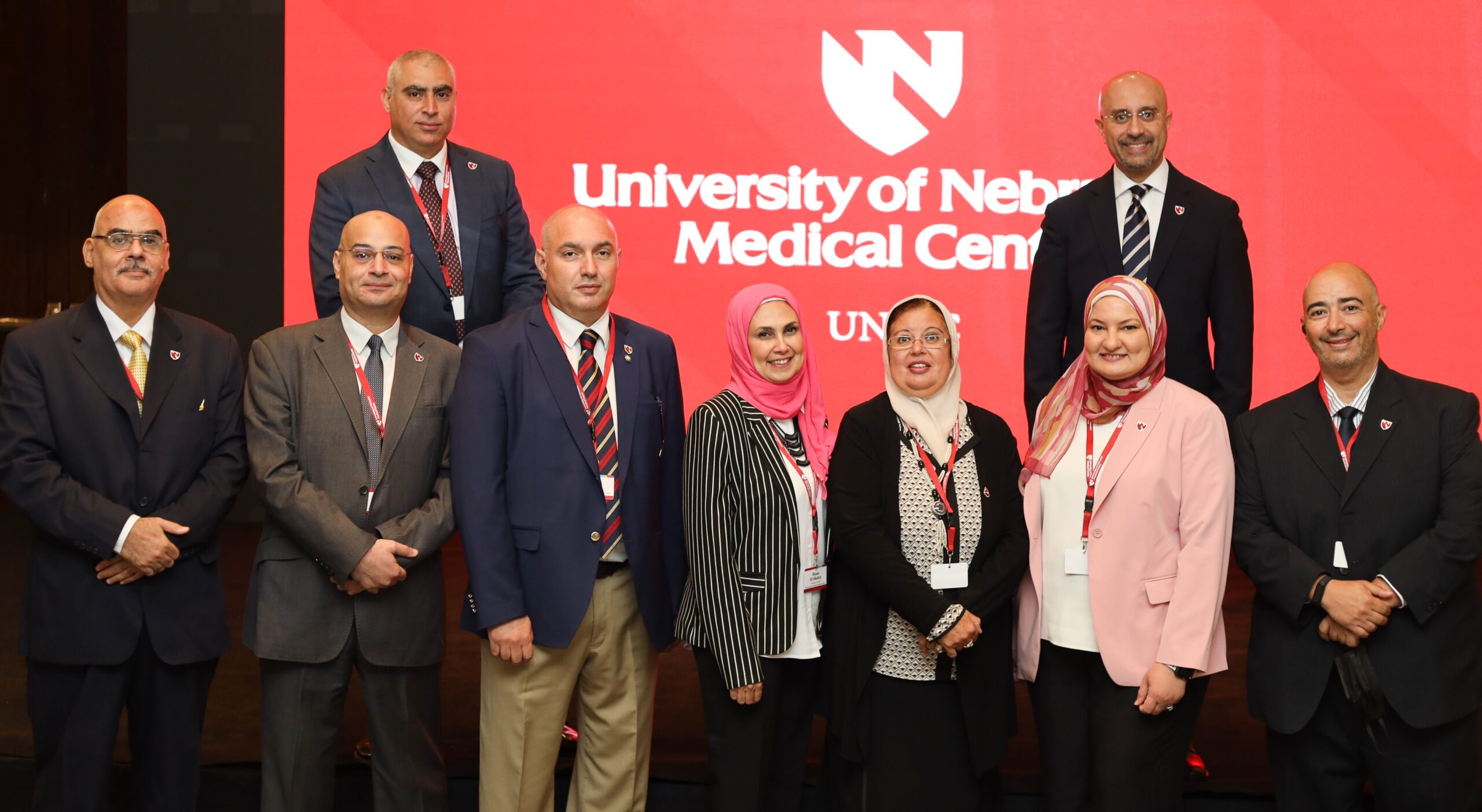
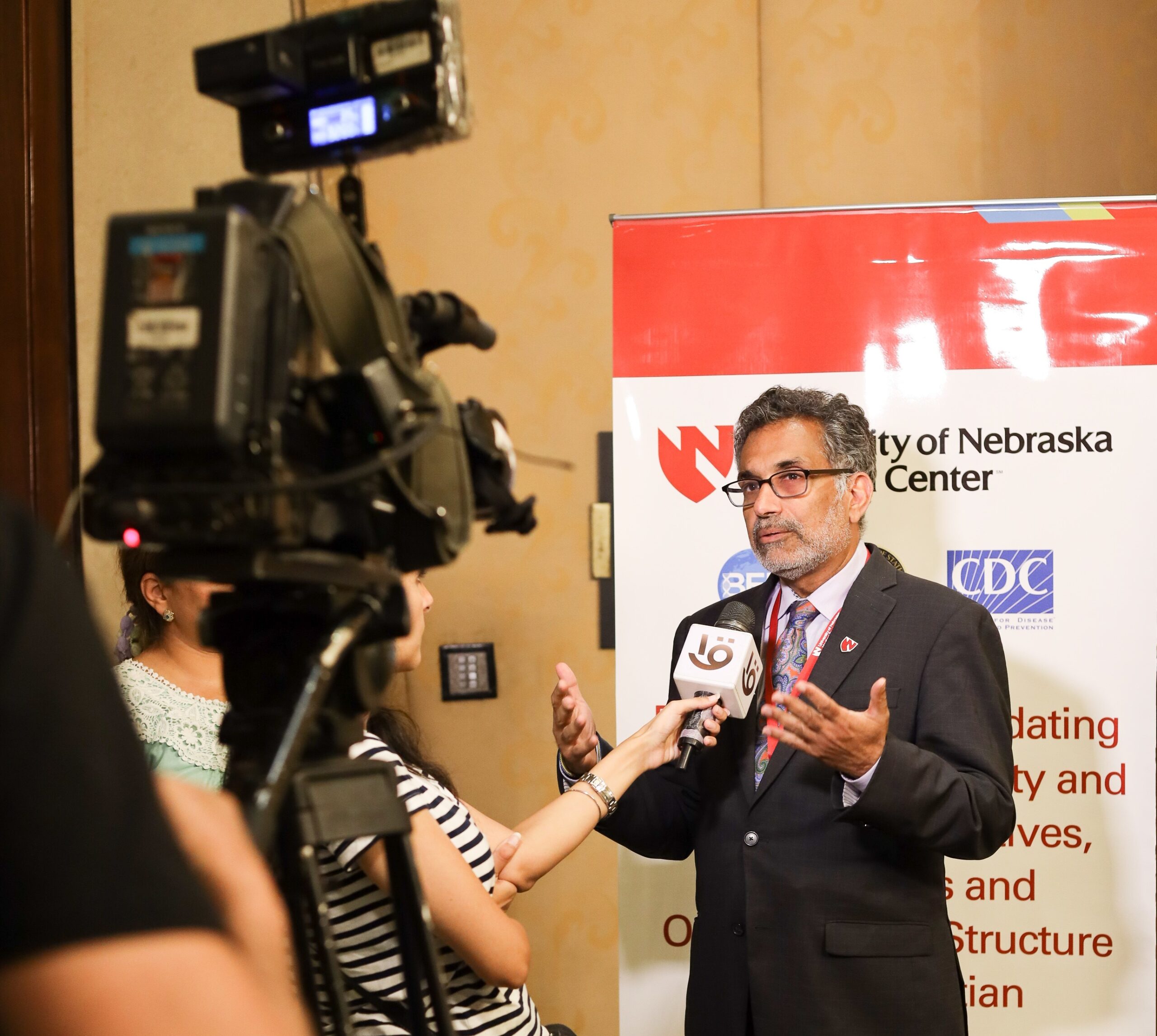
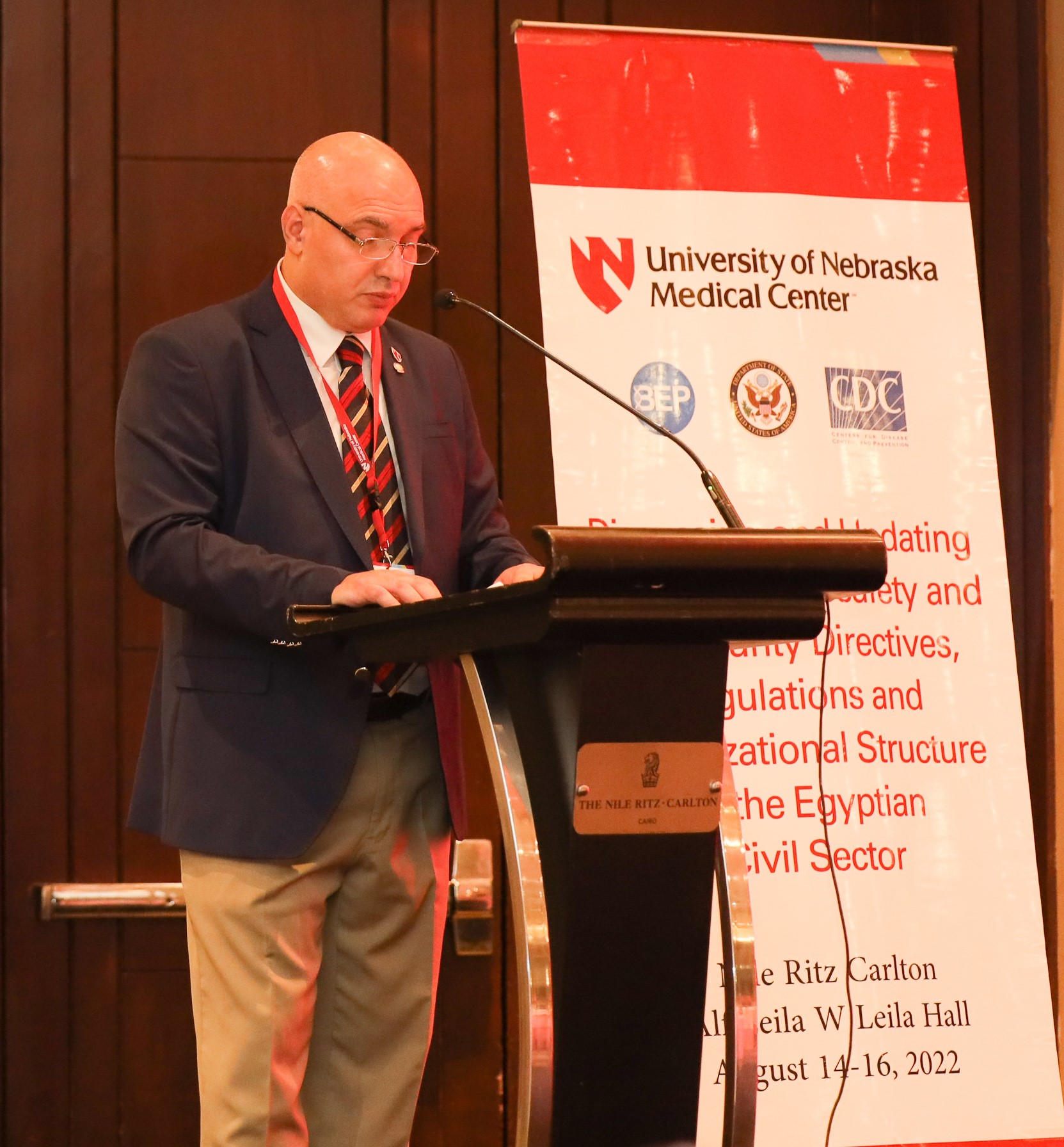
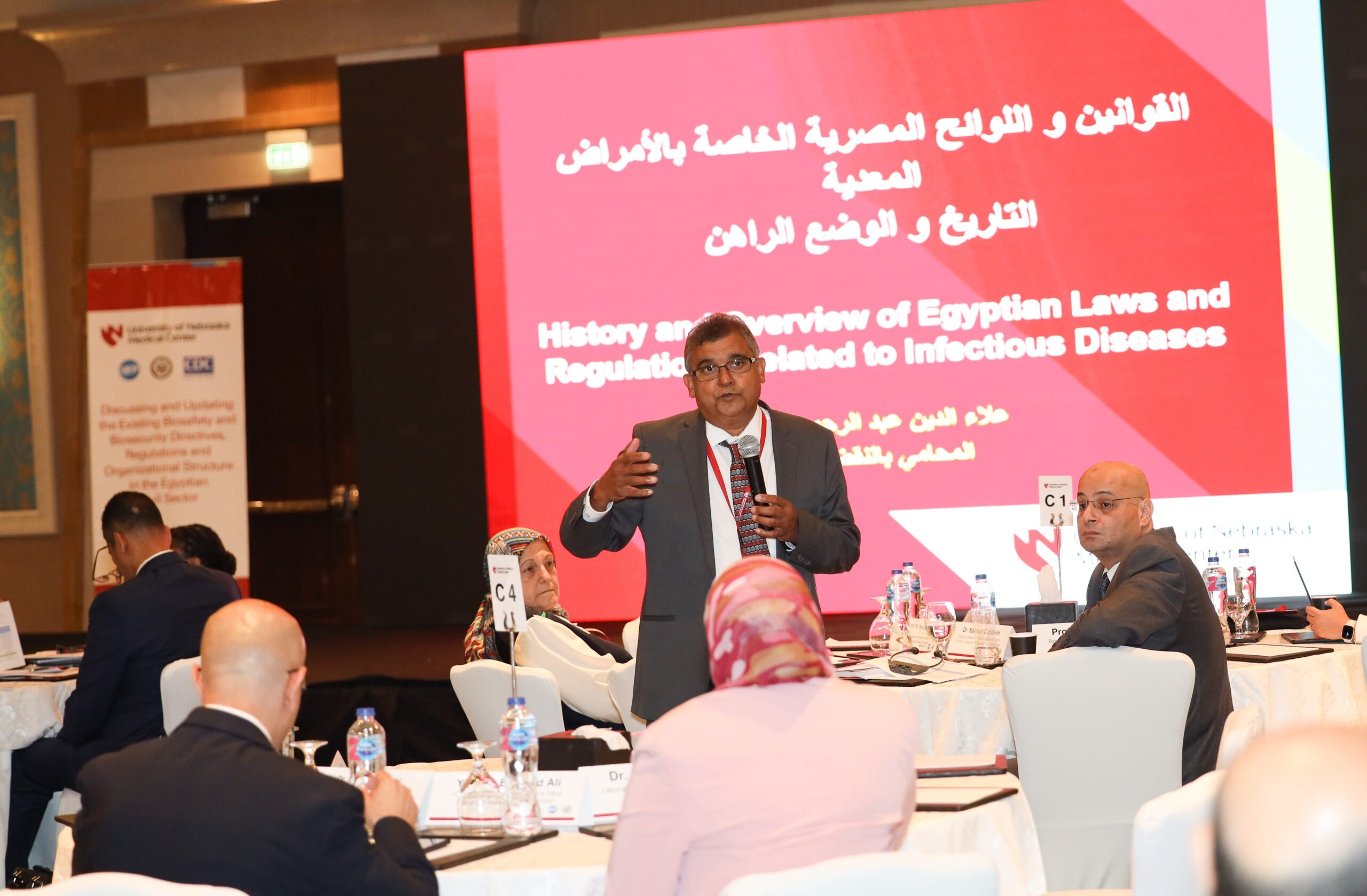
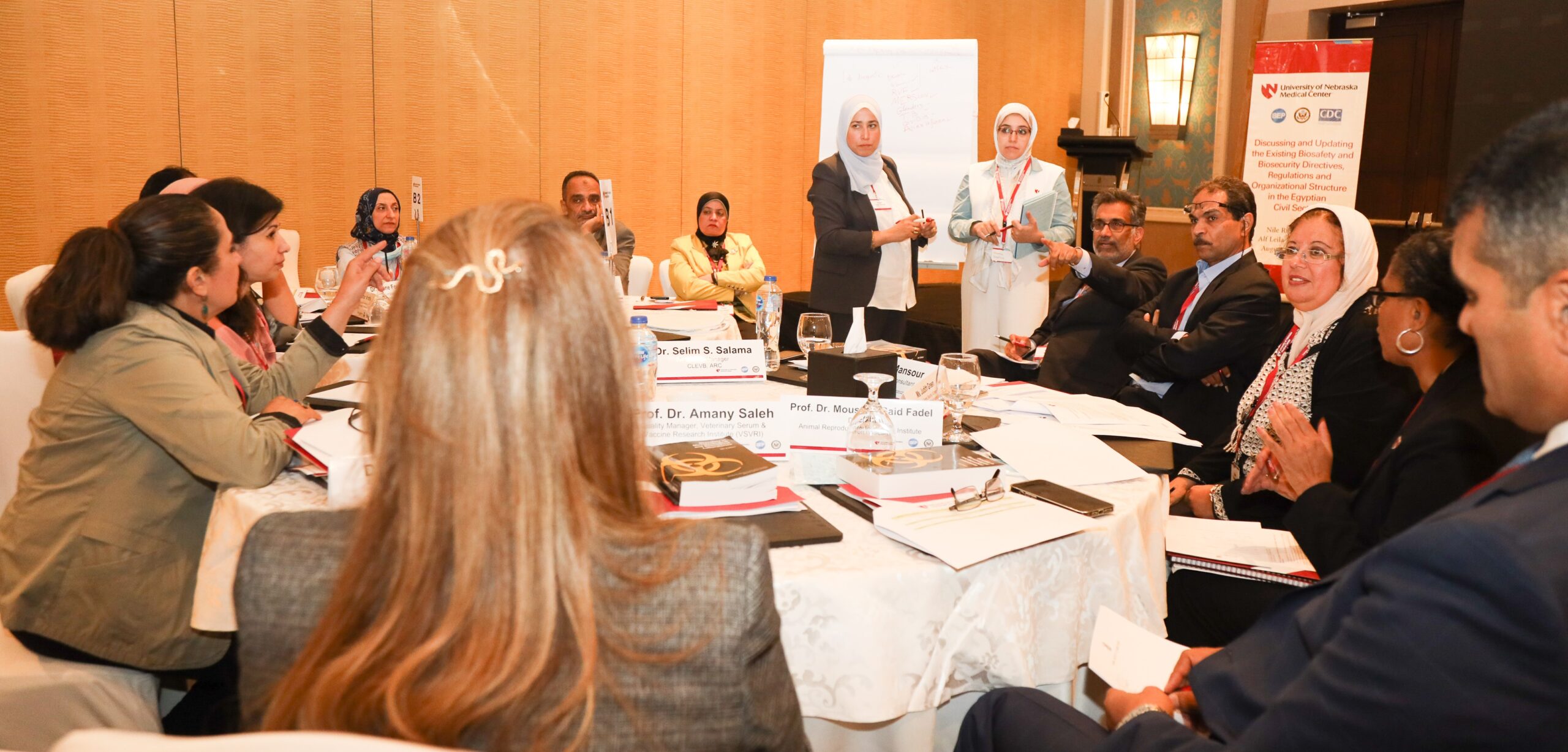
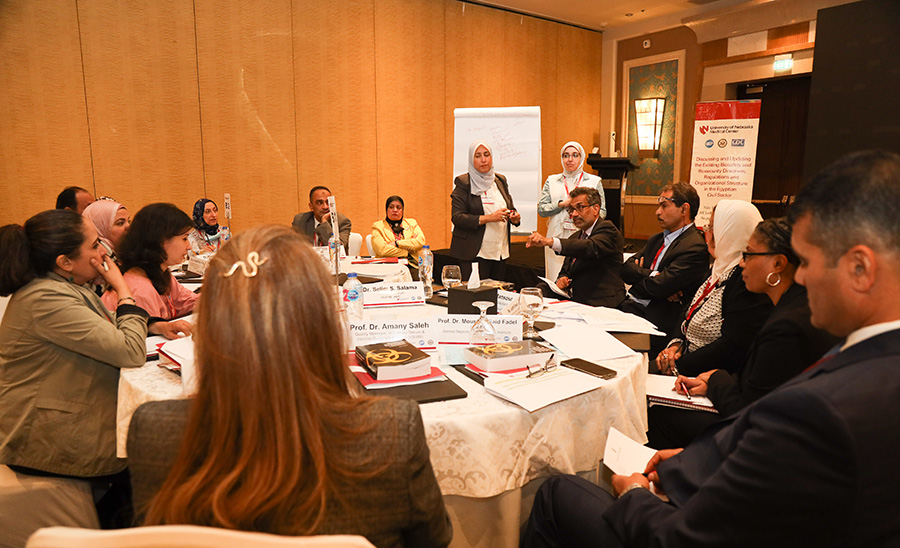
Great job and Important workshop for Biological Select agents and toxin (BSAT) control measures,
Thanks for UNMC for their input and support .